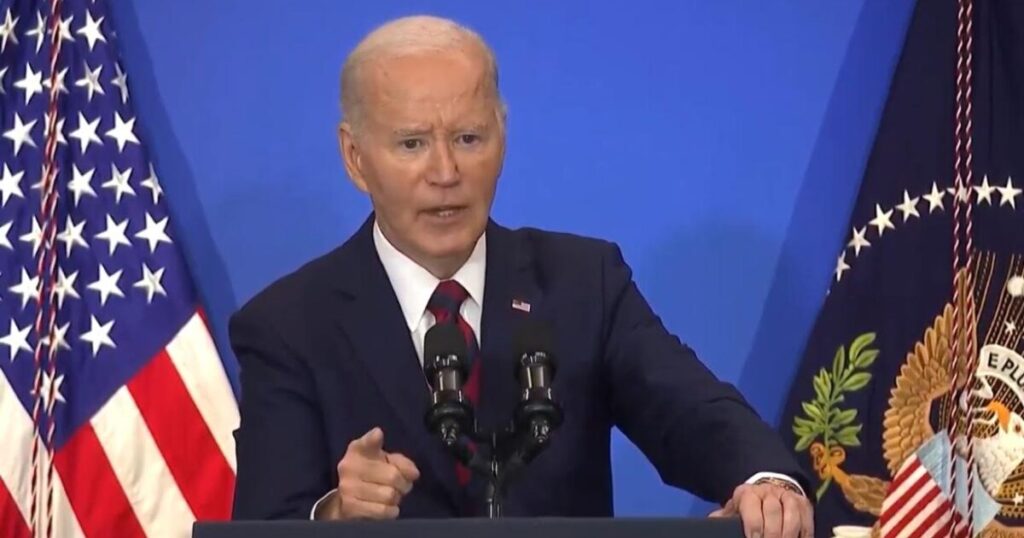In the aftermath of the tragic shooting at Abundant Life Christian School in Madison, Wisconsin, President Joe Biden has reiterated his calls for stronger gun control measures. The incident, which resulted in three fatalities, including the presumed juvenile shooter, and six injuries, has reignited a national debate about gun violence and the effectiveness of current laws. Biden’s appeal for Congress to implement universal background checks, a national red flag law, and a ban on assault weapons and high-capacity magazines underscores a persistent issue that has plagued the United States — the safety of children in schools and the urgency to curb gun-related violence. The President emphasized that students should be focused on their education rather than being trained to respond to dangerous situations like ducking for cover during shootings.
Despite the gravity of his message, Biden’s timing has raised eyebrows given that he recently pardoned his son, Hunter Biden, for various offenses, including violations related to gun laws. Hunter Biden’s case involved lying on a federal firearms application and the disposal of a firearm inappropriately, actions that starkly contrast with the tougher stances his father has proposed in the wake of the school shooting. Critics have labeled this a blatant hypocrisy, questioning the credibility of Biden’s calls for gun control when his own family has faced legal issues related to firearms. Social media users quickly highlighted this inconsistency, suggesting that Biden’s advocacy for stricter gun laws loses its weight when juxtaposed against his personal family’s legal transgressions.
Biden’s statement following the shooting encapsulated the emotional weight of the events in Madison, linking it to a broader pattern of violence affecting American schools. His assertion that “every child deserves to feel safe in their classroom” resonates with many who advocate for change, but detractors argue that it becomes difficult to trust the sincerity of such sentiments amid the personal controversies surrounding the Biden family. Many people on platforms like Twitter have pointed out the irony, drawing attention to the reality that Biden has previously pardoned his own son for violating laws aimed precisely at preventing tragedies like the recent school shooting. This has led to discussions about accountability and the need for consistent application of laws for all citizens, regardless of social or political standing.
In the broader context of gun violence in the United States, incidents such as the Madison shooting are often followed by calls for reform, yet there are numerous cases where public outcry for gun control does not manifest. Notably, the shooting of UnitedHealthcare CEO Brian Thompson did not spark similar demands for legislative change, leading some to question the motives behind such activist responses. Actress Justine Bateman’s observation on social media reflects a growing sentiment that the demand for gun reform may be selectively applied, evoking frustration among those who believe that a consistent response should be made for all instances of gun violence, regardless of the victim’s status or identity.
The conversation around gun control often highlights a schism between Democratic and Republican viewpoints regarding the Second Amendment and individual rights. Proponents of stricter gun control advocate for measures such as background checks and regulations on certain types of firearms as necessary for preventing further violence. On the other hand, gun rights advocates frequently argue that the solution to gun violence lies not in restricting access to firearms but rather in enforcing existing laws and addressing the root causes of criminal behavior. The lack of consensus on this issue complicates efforts to pass meaningful legislation that could potentially save lives while preserving constitutional rights.
As the nation grapples with the implications of the recent shooting and the larger context of gun control, it is evident that the need for genuine dialogue is more crucial than ever. Biden’s call to action, though resonant with many, is overshadowed by the challenges of political divisiveness and the perception of hypocrisy. Engaging in constructive discussions that bridge the ideological gap, while addressing the complexities of gun violence, the responsibilities of ownership, and the impact on communities, is essential for finding a path forward that ensures the safety of all citizens, particularly the vulnerable youth in schools across the country. The juxtaposition of personal actions and public responsibilities serves as a pivotal lesson in the ongoing struggle for effective and equitable gun control policy in the United States.

